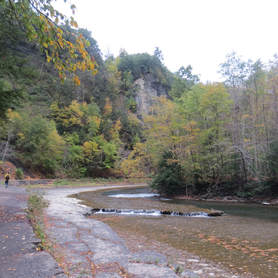 When we hear preaching which rambles or which seems to ‘do nothing for us’, there is no doubt about it: it is a turn-off. No one can hit a home run every time they are at bat and so it is bound to happen from time to time. Ironically, it was just such a homily which served as the inspiration for this reflection. I do not want to seem snobby or hypocritical, especially as a writer who may give others the same impression, but trust me on this one; it was pretty egregious. I will not repeat the Scriptural ‘miscues’ which I heard, but suffice it to say that the repeated reference to the two brother-apostles as “Jimmy and John,” is evidence enough of the quality of the preaching in question. Although the homilist's remarks were unlike anything I have ever heard in my forty years of studying Scripture, as I was struggling to stay attentive, an unexpected insight came. A comment led me to think about the encouragement and the often necessary challenge from others which helps us on the road to vocational discovery such as that which the brothers James and John received from Jesus. (Mark 10:35-45) What they experienced was essential to their vocational development as apostles. (You see, even a ‘poor’ homily can bear fruit if we are open to the working of the Holy Spirit!) 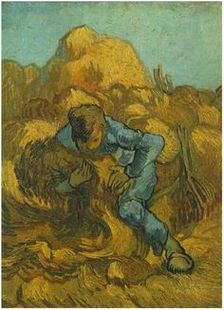 November 4-10 is National Vocation Awareness Week, the focus of which is on priesthood and religious life. In directing our attention to religious vocations, the emphasis is on the need for ‘laborers in the field.’ As Jesus put it, “The harvest is abundant but the laborers are few.” (Luke 10:2). Indeed, we do need to pray for vocations to the priesthood, diaconate, and religious life, but we also need to actively invite men and women, especially those who are young, to serve in the church. Many priests have said that either their parents fostered their vocation by acting as faithful witnesses (by living faithfully and openly as Catholics, and raising them as such), or that someone approached them and asked if they had ever thought of becoming a priest. Others were influenced by a priest or Religious whose joy in serving God drew them into seeing that they, too, were called in the same way. There is in fact a shortage of priests because the older ones are retiring or dying at a greater rate than the younger ones are being ordained. Our parishes depend on these men because they are the ones who are empowered through their ordination to bring us the Sacraments. * 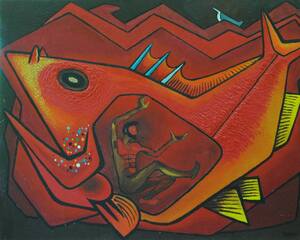 We need laborers of all kinds, especially those with a ‘fish story.’ To understand what this means, and in keeping with our “Prophetic Living” series, we now turn to the Book of Jonah. This short book was intended as a parable by its writer, an anonymous prophet, and so Jonah is actually a fictional character. In the story, Jonah was called by God to prophesy to the pagan Assyrians who were regarded as enemies. Jonah objected, and heading in the opposite direction, ended up being thrown off the ship upon which he was fleeing. He then was swallowed by a large fish, spending three days in its bowels until he was ‘released’ after praying to God for help. Therefore, the ‘fish story’ refers to the necessity for Jonah to experience God’s mercy and love in order to understand the need to share the message with the Assyrians. (It is also a prophetic reference to Jesus’ dying and rising.) God saved Jonah even though he had disobeyed, and so he had experienced mercy first-hand. Jonah proceeded to go to Nineveh and preached to his enemies as directed. Lo and behold, they listened, believed, and repented! But instead of feeling good about his success, Jonah angrily stomped off into the desert, still unable to connect God’s mercy to everyone; it was okay when God showed him mercy, but he was unable to extend it to those he perceived to be unworthy of it. The point the author was trying to make through this parable was as critical then as it is for us today: God’s mercy is for everyone and is not just for the ones we deem as worthy of it. He implies that we must be credible witnesses by offering ministry and a welcome to those who are in need. 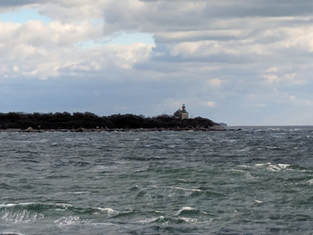 From the Book of Jonah we can apply many things to finding one's vocation in ministry. First, it is not uncommon for those who experience a calling to priesthood to be frightened by the enormity of it; or perhaps they could feel unworthy, or that they simply would not be happy in that life. As a result they become like Jonah, running in the opposite direction, doing all they can to avoid having to face the call which is persistent and almost annoying to them. This is actually not a bad thing, just as it turned out to be a blessing in disguise for Jonah when he ended up in the belly of the fish. In those three days, he learned a fair amount, even if he did not fully comprehend the lesson. This is true of those who are being called to the priesthood as well: just as God knew Jonah was not perfect and that his understanding was not perfect, nor was he anything other than a work-in-progress, the priest is not expected to be perfect either. As in all vocations, the ministry of priesthood is a continual lesson in God’s mercy and grace. Often someone will run from it because no one has helped him to see that this is so and that he is not expected to go it alone, but will continually have the support of the Holy Spirit and of the community. Thus we need to help give that support to them. 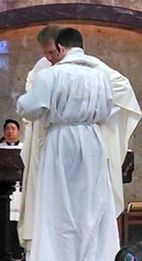 Also like Jonah, the one running from a call to the priesthood may be doing so because they perceive it as a call of negation: that is, they may be focusing on what they would be giving up, rather than what they will be gaining. Just as Jonah did not want to face a way of life which was different than the one he thought he preferred, so too the priest needs to be open to a different reality than the one he has previously been used to. If we were to extrapolate the end of the parable of Jonah, because he was a good man we can assume that he did finally come to see the wisdom of God showing mercy to the Assyrians. Likewise, there is no reason for the one called to priesthood to believe that God has something other than his best interests, and the best interests of His people, in mind! Therefore the focus should be on their relationship with God and how they want to express their love and trust. God certainly does not ‘conscript’ anyone into a life which would lead to unhappiness. Rather, God knows us better than anyone and so He wants to lead us to that which will give the greatest freedom and fulfillment. 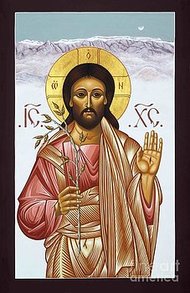 Everything which we have learned from the Book of Jonah is applicable to all three vocations: ministerial priesthood, marriage, and single life. All of us were baptized as priest, prophet and king! We all need to discern our call and then to discern the daily living of that vocation. Each of us needs to pray for the grace to bring the faith to those who do not know it or who are somehow set against us. We all must be credible witnesses in our word and deed, living our ‘fish story’ which is the arena in which we learn the mercy, forgiveness, and love of God and in turn offer it to those who we meet. Our ‘fish story’ is truth, not a fabrication. And perhaps our ‘fish’ is Christ: remember that the Greek word ichthys, the acronym used by the ancients to identify believers, translates to “fish.” Thus we must adhere to our 'fish story,' our call, our faith.** The way we invite people to explore and then accept the vocation to which they have been called is the same way we invite people to come to know God in the wider world. We model it, we live it, and we guide others to it through our faith, hope, love, and works of mercy. We must never apologize for our faith and we must never be afraid to live it as Jesus taught. If we want to be effective in loving and serving Christ, we need to do more than simply hear that it is National Vocation Awareness Week: we need to pray, discern, invite, and act with faith and courage in living our own vocation, always relying on the Lord from whom all good gifts come. Let us embrace our call with faithfulness, encouraging others to do the same, that we might all live the ‘fish story’ which is the truth of God’s mercy and care for His people. 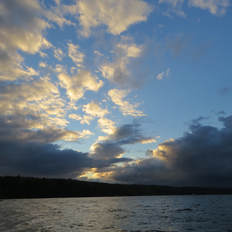 May we be credible witnesses to the faith we have been given! May we actively pray, work, and inspire men and women to find their vocation in the priesthood and religious life! May we come to know the mercy God has offered us continually throughout our lives and embrace this gift with gratitude! May we have the courage to offer the same mercy we have received to those who are in need of it, no matter who they are or what they have done, without exception! And may we live our own vocation in truth, relying upon the Holy Spirit to guide us along the way! Let us continue to meet in the Heart of Jesus! Peace! ©Michele L. Catanese Notes: Next post, November 19. - While this week is part of the Catholic Church, no matter what church one belongs to, the need to fulfill the unique call given by God is part of everyone’s life, so we all need to pray for vocations to ministry. * For more on National Vocation Awareness Week click here: http://www.usccb.org/beliefs-and-teachings/vocations/national-vocation-awareness-week.cfm ** Ichthys (ἰχθύς) is the Greek word for fish, which Christians in the early Church used as a way to identify themselves and other Christians. Each letter of the word stands for "Jesus Christ Son of God Savior." See the following link for more: https://ichthys.com/ichthys-explanation.htm Images: 1. This is one of my photos, taken at Taughannock Creek, near Trumansburg, NY. I chose this photo because the creek was meandering just as the homily I heard was all over the place. But like this creek, it did lead somewhere, and so even in the midst of some 'strangeness' it brought me to unexpected inspiration. 2. This painting is called Sheaf-Binder by Vincent van Gogh (1889). It is a laborer at the harvest; he is alone, therefore symbolizing a dearth of laborers to help him. 3. This acrylic on wood painting is called Jonah and the Great Fish by Luisito Magno an artist from the Philippines. I loved this the instant I saw it, so I had to include it here. Check out his work at https://www.saatchiart.com/art/Painting-Jonah-and-the-great-fish/797781/2565151/view. 4. I took this picture while aboard the ferry traveling across the Long Island Sound from New London, Connecticut to Orient Point, Long Island, NY. That is the Plum Island Lighthouse in the distance. I chose this photo exactly because the water was choppy due to some winds. It reminded me of Jonah on the boat, a beacon of safety in the distance as a symbol of the grace and mercy of God which is never far from us, and the journey through life which is beautiful, even if perilous at times. 5.I took this at the ordination to the priesthood of Fr. Richard Hinkley, a friend and a wonderful priest. I could not write a blog on vocations to the priesthood and not include a priest! Please keep Fr. Richard in your prayers while he recovers from a serious illness. Thank you! 6. This icon is called Nuestro Salvador De Las Sandias, written by Fr. William Hart McNichols. Two thoughts: First, I chose this icon because Jesus is shown in a position of offering peace and mercy, new life and grace. He is depicted in the Sandias Mountains of New Mexico, which reminds us that Jesus is present at all times and in all places. Second, the iconographer is a priest! Priests have many gifts, many ministries, many ways of serving and glorifying the Lord. You can find this icon in one of many mediums for purchase if you so desire at https://fineartamerica.com/featured/nuestro-salvador-de-las-sandias-012-william-hart-mcnichols.html. We are nearing the holiday season; if you are thinking of cards or a gift for someone, perhaps some icon from the work of Fr. Bill might interest you. https://fineartamerica.com/profiles/william-hart-mcnichols.html?tab=artworkgalleries (Remember, I do not get commissions and I do not get any remuneration from recommending Fr. Bill's work. But what I do get is the joy of sharing beauty!) 7. This is one of my photos taken in Trumansburg NY. This is Lake Cayuga, one of the Finger Lakes in mid NY State. I chose it because it seemed to tie up the theme of the 'fish story' and the beauty which comes with our Christian journey. NOTE: In compliance with GDPR rules, I wish to make it clear that I do not gather any information on any of my readers at any time.
Carmella Wygant
11/6/2018 10:01:59 am
Exceptional writing, you have again been a conduit of God the creator, the Son and the Holy Ghost. The power to transform is with LOVE.
David
11/13/2018 03:17:18 pm
Michele, I completely agree with what Carmella has written, and don't believe I can express it any better than she did. Truly exceptional. Comments are closed.
|
Heart Speaks to Heart
|

 RSS Feed
RSS Feed

